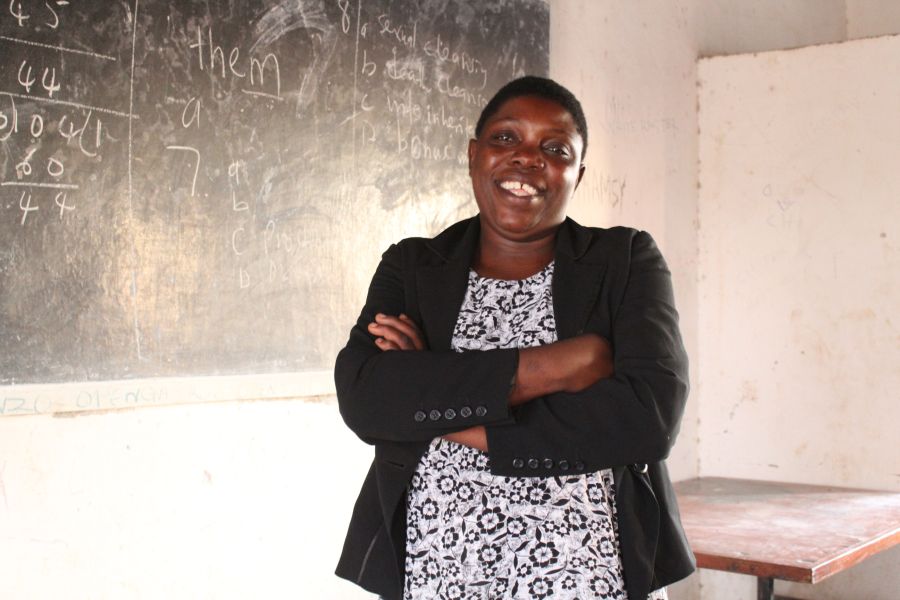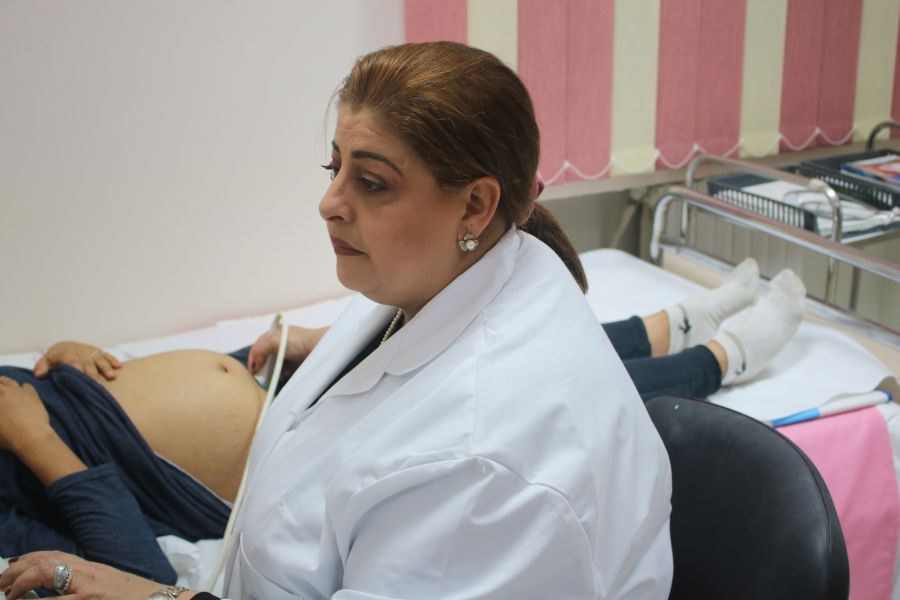
Sulemana is a teacher in Ghana. “When I came to this community as a teacher, I realized parents don’t want to bring their children – especially the girls – to school, she says. They believe that a girl belongs in the kitchen.” Photo: Jacob Stærk
Universal public services have an unparalleled power in tackling poverty and reducing inequality. They are at the foundation of free and fair societies.
Yet, a decent education or quality healthcare is a luxury only the rich can afford in too many countries. Across the globe 262 million children are out of school. 10,000 people die every day because they can’t access healthcare.
Teachers and public health care workers like Nellie and Dorra dedicate their life to great public services that benefit the poorest. And fight inequality every day.
“Many children walk long distances to get here. Many come with empty stomachs.”

“My father inspired my sisters and me to become teachers. I’ve taught at the community secondary school for my area for 19 years. Our children come from very poor families. Many walk long distances to get here. Many come with empty stomachs. We have a problem of too few textbooks, dilapidated classrooms and teaching materials.
Over the years, I have seen so many girls and boys who score highly despite coming from poor backgrounds. I remember Chimwemwe Gabisa – she was brilliant at mathematics, the best I have taught. She finished secondary school but could not proceed to college for lack of funds.
With more money a lot could be done at our school. We could provide students with breakfast. We could provide them with textbooks and basic necessities like school uniforms and exercise books. At least this would give them a better chance in life.” (Photo: Watipaso Kaliwo)
“If the boy had not got care he would have lost his sight.”
 “A boy with a cornea ulcer came to see me. He was living with his grandparents because his parents had died. He needed expensive medicine. His 80 year old grandmother was told to take a prescription to the pharmacy. She broke down in tears and said, ‘I just sell vegetables and snails and I do not have enough money’.”
“A boy with a cornea ulcer came to see me. He was living with his grandparents because his parents had died. He needed expensive medicine. His 80 year old grandmother was told to take a prescription to the pharmacy. She broke down in tears and said, ‘I just sell vegetables and snails and I do not have enough money’.”
“I worked with the hospital staff to raise the money between us. His grandmother brought us fruit and a basket of snails. She wanted to say thank you to all the staff. If the boy had not got care he would have lost his sight.”
Lê thi Cam Thanh has been a doctor for 25 years. She’s dedicated herself to building a good primary health care system. But, she worries about the future. Public sector health doctor’s wages are low and their student debts and discrimination towards women medical professionals are barriers in the way of health care for all. She knows government has to be the main provider of health care for poor people. “They are the player that will deliver.” (Photo: Tran Loc)
“I work to strengthen the students’ self-esteem, to make them feel safe.”

When Betty first came to the school in Palca, a rural community 40 km from La Paz, she met students who could not read or write even after four years of schooling. Some children had to work in addition to studying. Some walked up to two hours to get to school, and some were malnourished.
“We do not have enough. We do not have the appropriate classroom furniture or equipment. In addition, many children in rural areas feel like they are less – undervalued – and they do not achieve the expected grades in their class. I work to strengthen the students’ self-esteem, to make them feel safe, make them feel they can contribute, get them to participate and not be afraid to speak.”
Betty faces many challenges helping her students, but she has seen improvements in the way the government shapes education – respecting the diversity of students and learning styles. A new bursary program that awards students for each year they stay in school (money for school supplies and uniforms) has helped reduce the drop-out rate. (Photo: Alexandre Laprise)
“My role as a doctor seemed insufficient to help. I became a sort of social worker.”

Dorra has been a doctor for 23 years. She chose to work in Cité Hellal, a disadvantaged and dangerous neighborhood of Tunis, where she was assigned to a maternal and child health center. She was committed to improving care but was often discouraged by the lack of budget, medicines, equipment, and disinterest from the ministry.
“My role as a doctor seemed insufficient to help the inhabitants of the neighborhood. I became a sort of social worker. I had to mobilize the private sector to offer free diapers, milk, and school supplies for needy families. In 2014 the Minister of Health paid a visit to our center. I reminded him that the public health sector was built through the efforts of generations. This should not be abandoned, but supported to realize the constitutional right to health.”
She was then summoned to the ministry to present her plan to upgrade the center. It has taken four years of consultation, building and struggle against financial obstacles and corruption, but today the center is a model for comprehensive care. It has become a place of refuge for many. (Photo: Slim Boussoffara)
We can change this
Growing inequality is undermining the fight against poverty, and many governments are making it worse. They are failing to ensure the wealthiest in society pay their fair share of tax while underfunding vital public services such healthcare and education. And it is the poorest who lose out.
Inequality is not inevitable. There is no law that says the richest should grow ever richer while people in poverty die for lack of medicine.
Join us and together let’s fight inequality and beat poverty for good.
